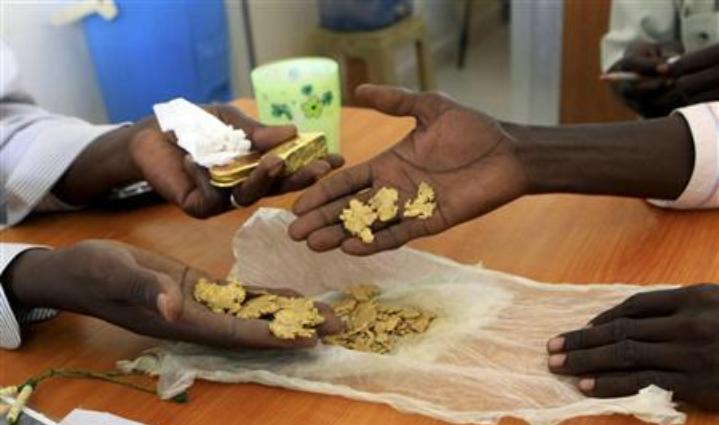Sudan’s mineral minister pays rare visit to N. Darfur gold mines

February 13, 2017 (KHARTOUM) – Sudan’s Minister of Minerals Ahmed Sadiq al-Karouri on Monday has arrived at Jebel Amir gold mines in North Darfur State to follow up on efforts to legalize and regulate the mining activities in the region.
Al-Karouri, who addressed crowds of traditional miners at Jebel Amir Monday, said he is visiting the area in order to “legalize and regulate traditional mining to maximize the benefit and minimize the negatives in this sector”.
He urged the traditional miners to cooperate with the committees tasked with legalizing the work in the sector, disclosing that a fund to support the services in the area would be established in coordination with the mining companies operating there.
Al-Karouri said that any company that refuses to carry out its social responsibility duties would risk the cancellation of its mining permission, pointing that contracts with 50 companies have been cancelled for failing to comply with the regulations including the social responsibility projects.
It is noteworthy that the minister was accompanied by the governor of North Darfur Abdel-Wahid Youssef and the second in command of the SRF Abdel-Rahim Hamdan Daglo besides delegates from the defense and energy sub-committees at the National Assembly and several army, police and security commanders.
For his part, North Darfur governor said that security and stability are top priority for his government, stressing they would proceed on to impose the authority of the state.
He denied any foreign presence in the Jebel Amir area, pointing to unknown groups who seek to promote drugs and alcohol among the traditional miners.
On 5 January, Interior Minister, Ismat Abdel Rahman Zein al-Abdin, called for the intervention of the army to end the control of foreign militias over Jebel Amir gold mines, saying there are more than 3,000 heavily armed foreigners riding four-wheel-drive vehicles in the gold rich area.
However, the government militia Rapid Support Forces (RSF) dismissed Zein al-Abdin’s statements, saying the militia and the Sudanese Army are present in Jebel Amir performing their national duties, and there is no foreign presence in the area.
Abdel-Wahid further pointed that no traditional miners will be affected by the process of legalizing and regulating the mining activities, stressing the ministry would sign contracts with the miners to preserve their rights.
Commissioner of Al-Siraif loclality, for his part, said that more than 5,000 traditional miners are currently working in Jebel Amir, pointing to miners demands to build a hospital or health center besides the provision of water services.
Sudan currently ranks third in gold production behind South Africa and Ghana but aims to land in the first place by 2018.
Gold has become one of Sudan’s largest exports which partially compensated for the loss in oil revenues, which accounted for more than 50% of income until 2011 when South Sudan seceded, taking with it most of the country’s oil reserves.
Sudan approved a law to regulate traditional mining by granting licenses and specifying areas to work in to protect them from hazardous conditions and smuggling.
It is believed that traditional mining employs more than a million Sudanese but it is still difficult to obtain credible data.
(ST)

